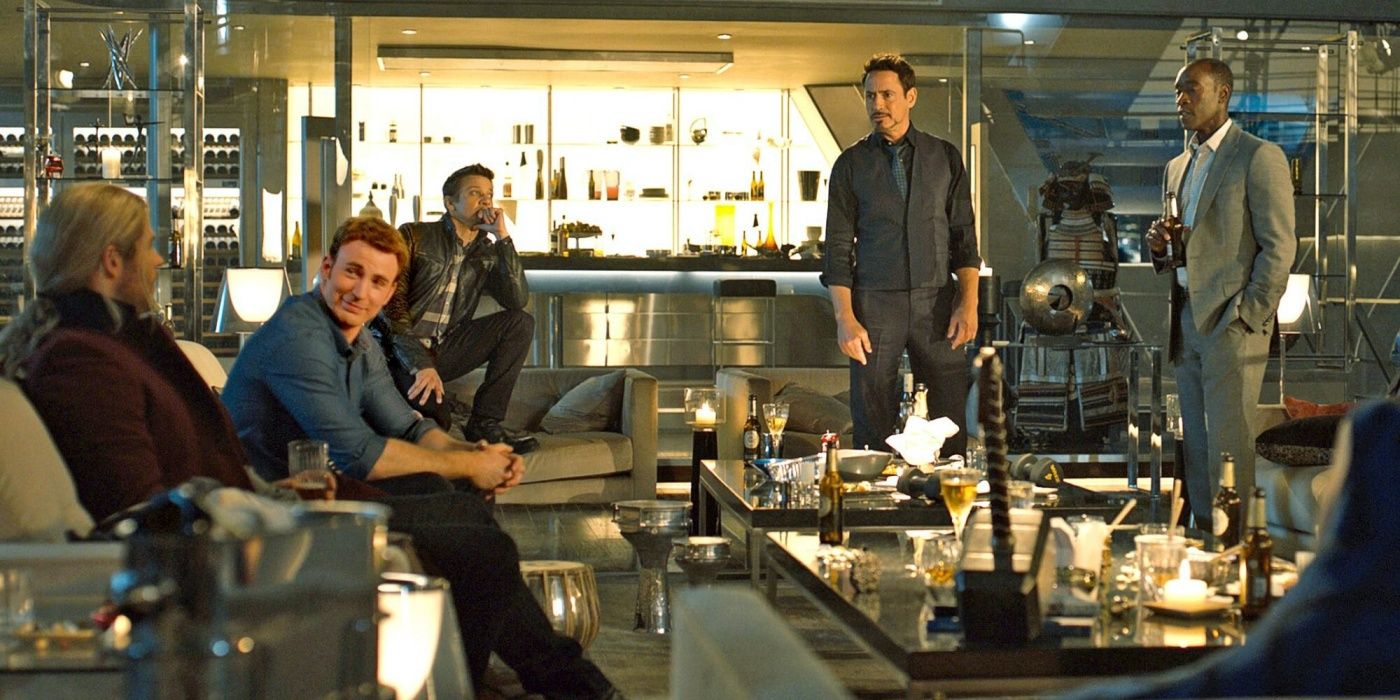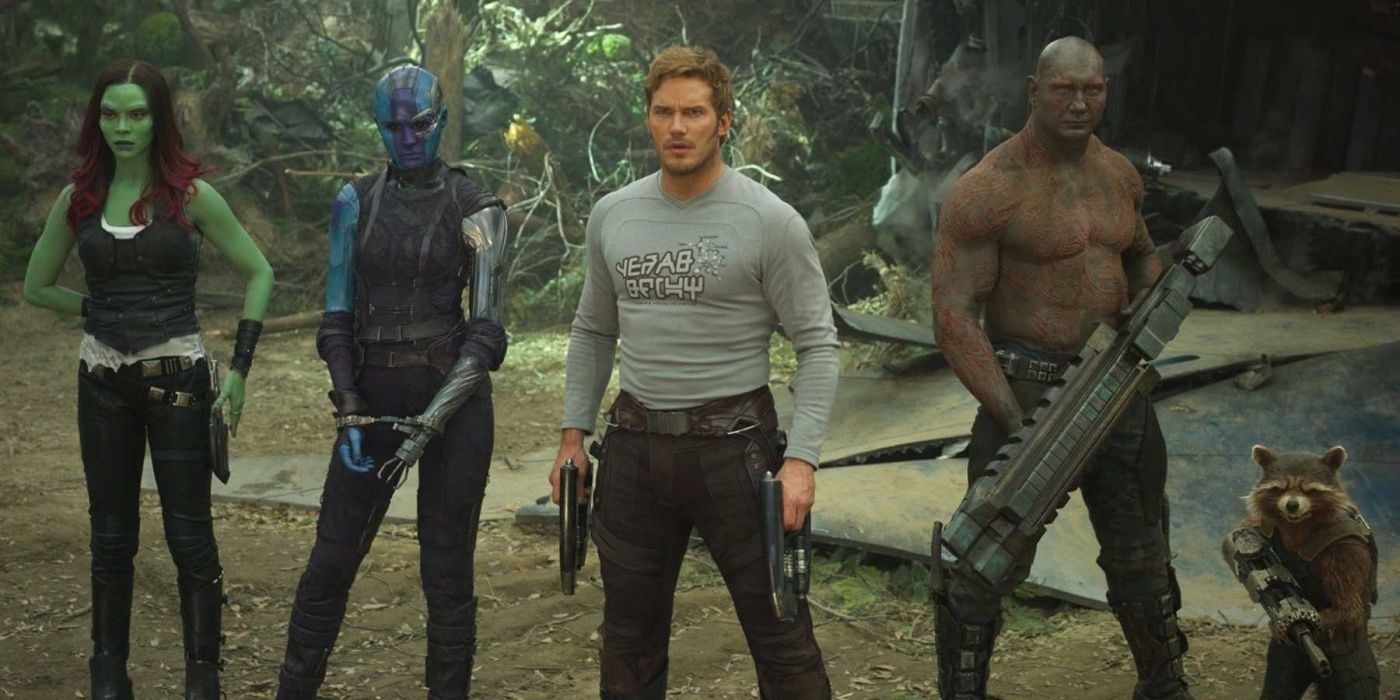As far as commonly used fiction tropes go, “found family” is certainly near the top of the hierarchy. A nearly universally beloved trope, found family involves a group of characters who aren’t related by blood come together because of adversity or some other interesting circumstance and find a family with each other that they perhaps don’t have with any sort of biological family. It’s a great trope because nothing is more endearing than a bunch of characters who are ride-or-dies for each other and who have a deep bond. Found family is about the family you choose rather than the one you’re born with, which makes the dynamic all the more interesting and emotional.
This is something that the MCU tried to achieve with the Avengers. There’s a lot of talk in Avengers: Endgame (particularly from Natasha Romanoff) about how the Avengers are like a family, and the events of Endgame are supposed to be a sort of farewell to this family being together. It’s the end of an epic saga about this chosen family and their deep love for and connection to each other…except for when it isn’t. In fact, this part of Endgame’s thematics never truly hits home, because the MCU never succeeded in making the Avengers feel like a family.
RELATED: Does The MCU Need A New Leader Of The Avengers?
“He’s a friend from work!” is, funnily enough, probably the line that best describes the dynamic of the Avengers throughout the Infinity Saga. They’re coworkers for the most part, and it really doesn’t seem like they hang out much in between the few Avengers team-up movies that the MCU has put out. They barely tolerate each other in The Avengers, and in Age of Ultron, they still have the feeling of a relationship that’s only happening in a specific circumstance, the way that work friendships are cultivated. In many workplaces, people come together because they were put into the same space and they don’t entirely hate each other. This is what a lot of the interactions between the Avengers feel like. The afterparty scene in Age of Ultron, while fun, is one of the only moments the audience sees them hanging out as friends, and even then it has similar vibes to a work party.

There are close friendships within the team, of course, such as Sam and Steve, Tony and Rhodey, Natasha and Clint, and Natasha and Steve. But it mostly seems to be in pairings, and the whole group is never as collectively developed in their relationship as these pairs are. In some instances, with a character like Thor, it’s almost hard to believe that he still considers the Avengers his friends. He meets them in The Avengers, spends most of his time after that (presumably) traveling the Nine Realms until Age of Ultron, where he afterward disappears from Earth again until coming back in Infinity War. On a closer inspection, it seems that he’s barely spent any time with the Avengers at all. In Endgame, Bruce Banner seems shocked to see the state that Thor is in when he visits New Asgard, implying that no one has really visited him over that 5-year gap after Thanos’s snap.
It’s just really hard to buy into the idea that this group of characters is a family when they don’t give off any sort of feeling that they deeply love each other, and instead spend half of their time fighting. It’s normal for families to have arguments and conflict, sure, but it seems like all the Avengers do is argue, starting in The Avengers, carrying over to Age of Ultron and, ultimately, Civil War. It would have made a lot of the MCU more compelling if Marvel had managed to actually have their main group of heroes feel like they have a closer relationship. It’s much easier to get invested in a group if you can feel the family dynamic, and it lends itself to both emotional moments and comedic beats.
Take, for instance, Guardians of the Galaxy, which was a found family story that the MCU actually managed to do right. The group as a whole feels cohesive, rather than just an assortment of pairings within the larger group. The Guardians have their conflicts and fight with each other (especially in the beginning), but they eventually learn to trust each other deeply and a lot of the storylines of their movies revolve around their connection (the ending of the first Guardians movie, for example). They feel much more like a family than the Avengers ever have, because they actually spend time together and build connections.

Of course, because these are movie characters, we don’t see what they do in between the movies or shows that Marvel releases. Theoretically, the Avengers could be spending a lot of time together that the audience simply doesn't see, but it’s hard to believe that when it just feels like they only come together for their team-up movies because of the kind of rapport they have. It feels like the way that work friends interact with each other, not a group of people who are supposedly a family.
It would have made a lot of the movies, particularly Civil War, Infinity War, and Endgame hit harder if the Avengers felt more like a family and if the viewer could really see that connection between them. It’s almost insulting that in Endgame, Natasha claims that the Avengers are her family and they don’t even give her a funeral like they give Tony when she gives her life for the cause. Big action scenes and set pieces are fun, but what really draws people in is character relationships, and the MCU simply didn’t spend enough time developing that between the Avengers.
It will be interesting to see if the MCU focuses more on this going forward, especially now that many of the major players from the first three Phases are no longer present. If they can bring the remaining heroes together into an Avengers team where the members really care about each other and see each other in a familial light (and these relationships are actually seen rather than just told to the audience), it could be a really interesting dynamic, and would make it easier to get invested in all of these new characters. If anything, Phase 4 and onward is a perfect opportunity for Marvel to correct the mistakes they made the first time around, and prioritize character connections and character growth.

